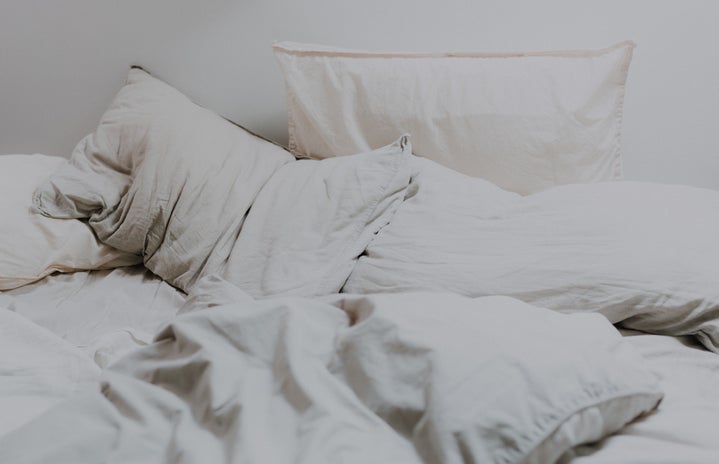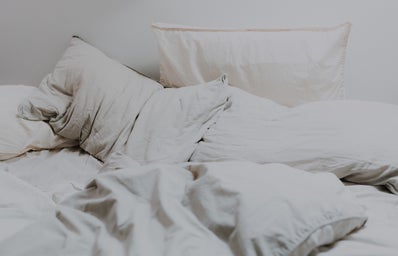As a self-labelled “night owl”, I have always struggled with going to bed at a reasonable time, regardless of the early alarms set for 8 AM classes and morning practices. Typically, I rely on caffeine to combat the constant fatigue and function throughout my day but research suggests that daily caffeine consumption may interfere with nighttime rest and harm sleep schedules.
The consumption of caffeine can be a juxtaposition – improvement of performance and disruption of sleep – leading to the vicious cycle of daily caffeine consumption. According to an article written in the Oxford Academic, 90% of American adults consume caffeine-infused beverages almost daily, with the consumption averaging 200 mg/day. Caffeine acts as a stimulant that affects certain functions of the brain associated with sleep and cognition, ultimately reducing the onset of drowsiness and potentially impairing one’s sleep patterns. According to the National Institutes of Health (NIH), it can take six to eight hours for the effects of caffeine to completely wear off.
Therein lies the problem: getting too little sleep the night before and drinking too much caffeine the following day to stay alert, creates difficulty when falling asleep the next night. Caffeine may be used as a quick solution to marginally improve daily performance after nights of minimal rest, but it is not a substitute for sleeping the recommended number of hours each night. Sleep is restorative, it allows the body time to repair and reset for the next day; without proper sleep, the body is at an increased risk of injury and a multitude of chronic health problems.
The National Sleep Foundation (NSF) and American Academy of Sleep Medicine (AASM) recommend that young adults (aka college students) sleep for seven to nine hours; however, how many college students sleep for the recommended number of hours each night? (Not me, that is for sure!) With 24 hours in the day, experts recommend that one-third should be sleeping and the other two-thirds for academics, exercise, relationships, work, hobbies, etc.
Maybe it is time to rethink the 3 PM coffees and instead make it more of a priority to get an adequate amount of rest each night. There are so many tips and tricks available online to create a better sleep schedule, one being to stop drinking caffeine eight hours before your bedtime to break the vicious cycle of caffeine consumption.


